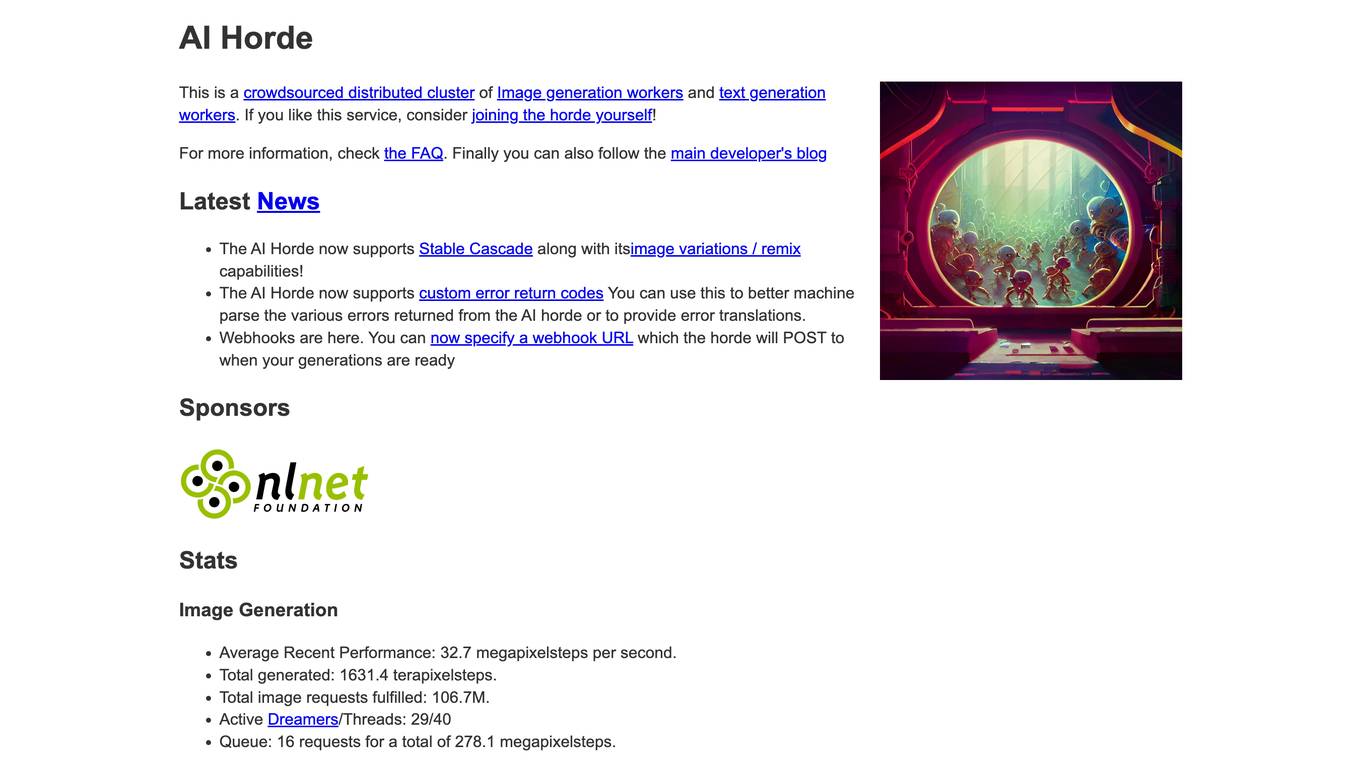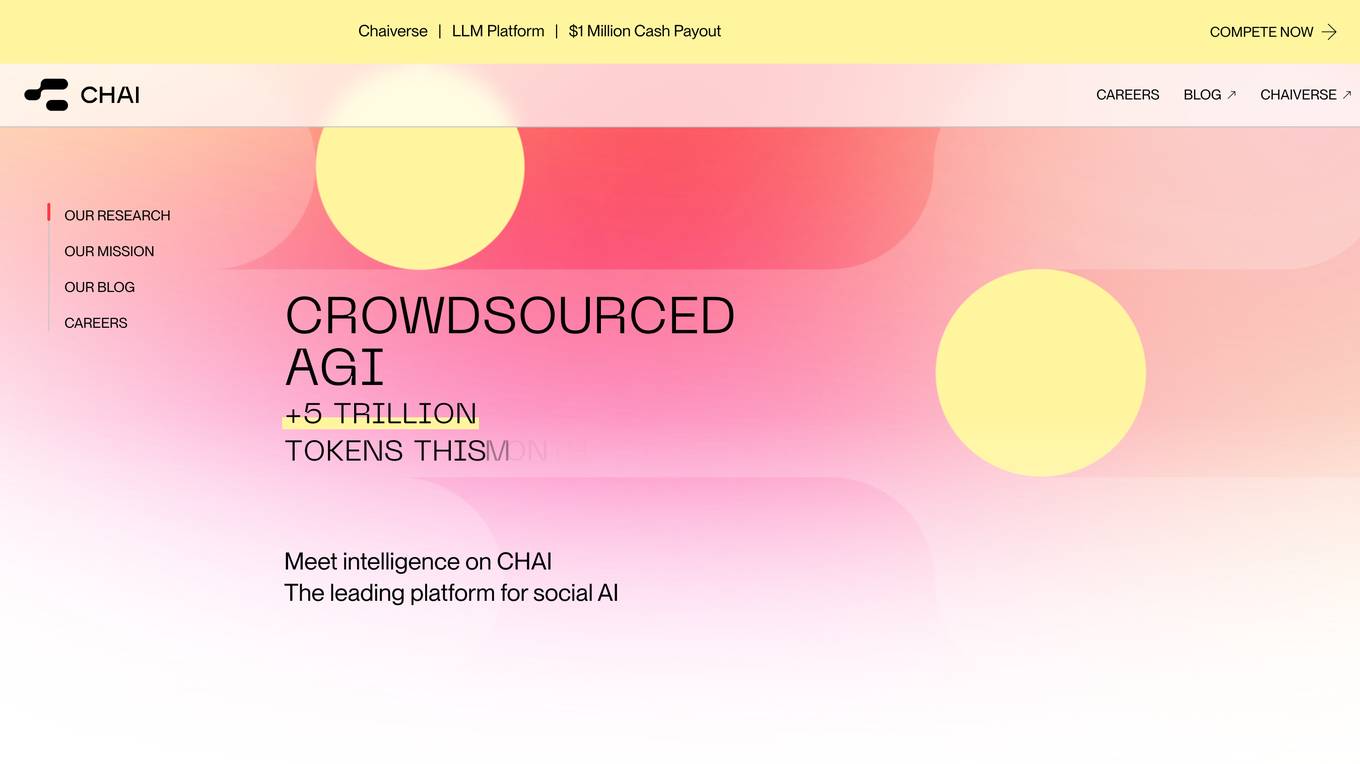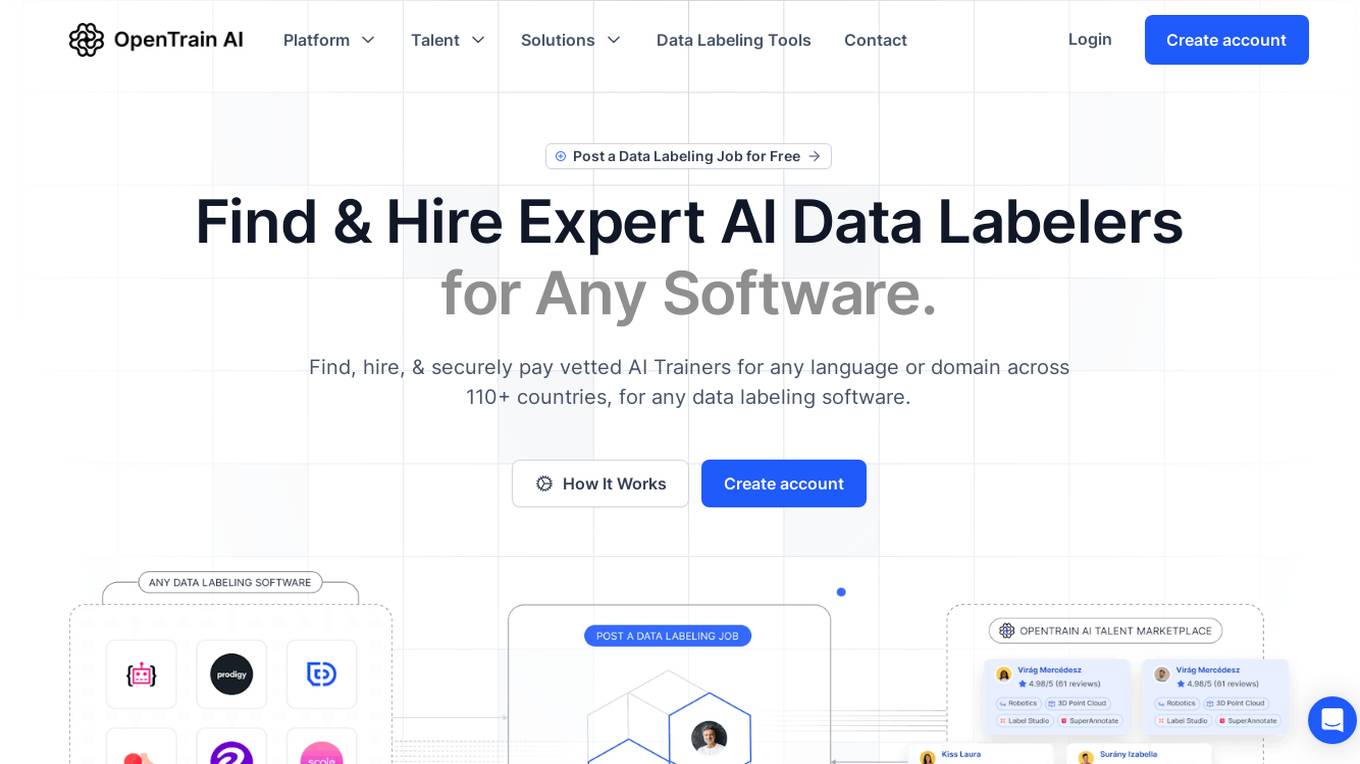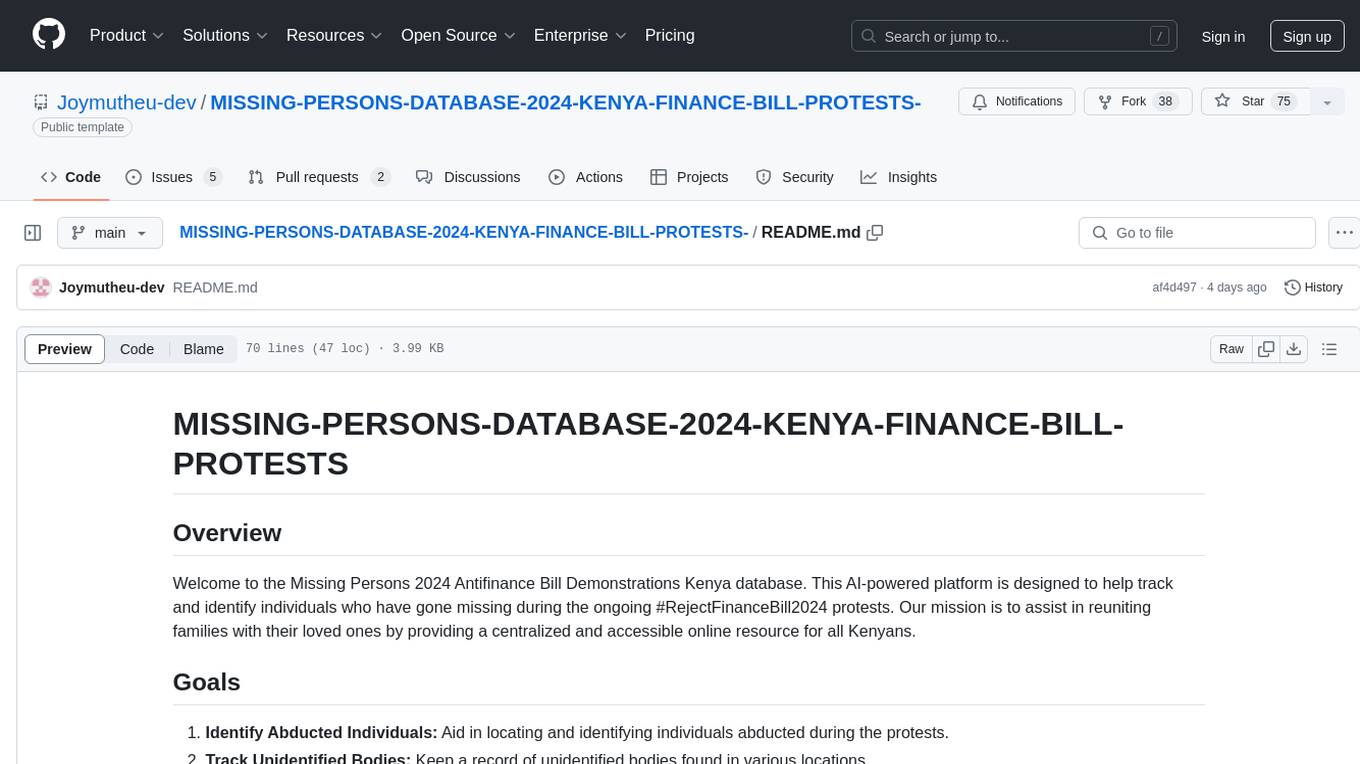Best AI tools for< Crowdsourced Information Upload >
3 - AI tool Sites

AI Horde
AI Horde is a crowdsourced distributed cluster of Image generation workers and text generation workers. It provides an API and various tools for developers to integrate AI-powered image and text generation into their applications. The AI Horde is supported by a community of volunteers who contribute their GPU processing power to the cluster.

CHAI AI
CHAI AI is a leading conversational AI platform that focuses on building AI solutions for quant traders. The platform has secured significant funding rounds to enhance both its computational capabilities and talent acquisition. CHAI AI offers a range of features and advantages, including model upgrades, deployment of various AI models, and efficient inference techniques. The platform aims to provide users with the ability to create their own ChatAIs and offers a unique approach to model blending for improved user retention. With a strong team of AI researchers and engineers, CHAI AI continues to innovate in the field of AI technology.

OpenTrain AI
OpenTrain AI is a data labeling marketplace that leverages artificial intelligence to streamline the process of labeling data for machine learning models. It provides a platform where users can crowdsource data labeling tasks to a global community of annotators, ensuring high-quality labeled datasets for training AI algorithms. With advanced AI algorithms and human-in-the-loop validation, OpenTrain AI offers efficient and accurate data labeling services for various industries such as autonomous vehicles, healthcare, and natural language processing.
1 - Open Source AI Tools

MISSING-PERSONS-DATABASE-2024-KENYA-FINANCE-BILL-PROTESTS-
The Missing Persons 2024 Antifinance Bill Demonstrations Kenya database is an AI-powered platform designed to track and identify individuals who have gone missing during the ongoing protests. It aims to assist in reuniting families by providing a centralized online resource for all Kenyans. The platform allows for crowdsourced information upload, monitoring disappearances, and tracking unidentified bodies to create a comprehensive database. Key features include a user-friendly interface, AI-powered search, real-time updates, secure handling of data, and detailed reporting.